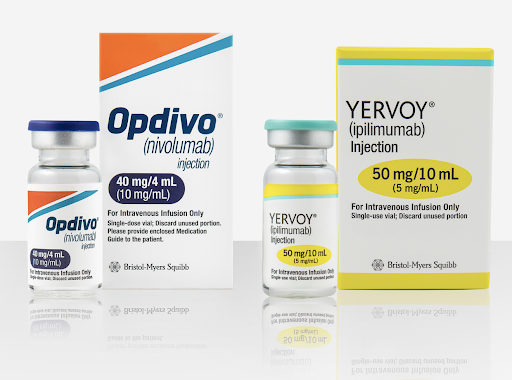Category: Research

Mesothelioma Treatment News: Delivering therapies directly into the pleural space
In a new article published in the medical journal The Lancet (Leveraging the pleural space for anticancer therapies in pleural mesothelioma by Blythe at al., 2024), authors make an argument for renewed focus toward therapies that can be delivered directly into the intrapleural space.
The benefit of such therapies is that by targeting the tumor directly, doctors are able to use higher doses of medication for increased likelihood of success while limiting toxicity to the patient.
Pleural mesothelioma is a cancer of the lining that surrounds the lung, which is called the pleura. So far, most attention has been devoted toward finding systemic treatments that work – a feat that has proven to be quite challenging. Systemic treatments are treatments such as chemotherapy or immunotherapy, which are administered through a vein, that travel throughout the entire body to kill the cancer cells wherever they may be. These treatments are currently the standard of care, but many patients’ tumors still don’t respond to them well. Because most patients’ cancer is quite advanced at diagnosis, this approach is often the only option anyway.
However, some patients receive a very early diagnosis either incidentally, meaning they underwent a surgical procedure for a different issue when mesothelioma was found; or because they presented with fluid buildup in the pleural space (called a pleural effusion) that prompted further testing. Recent staging studies suggest that this population of patients is significantly larger than previously thought and might include anywhere between 15% to 40% of diagnoses. For such patients, benefits of systemic therapies are unclear because studies that led to the FDA approval of chemotherapy and immunotherapy predominantly included unresectable (non-surgical candidates) stage 3 and 4 patients. Typically, early-stage patients are either offered surgery, or watchful waiting. But in the past year, this approach has been further complicated by a somewhat controversial surgical study called MARS 2 which showed limited benefits of surgery in the management of mesothelioma. Therefore, the expectation is that the number of early-stage patients who receive no immediate treatment will increase.
For this reason, the authors suggest that development of studies to test the effectiveness of localized intrapleural treatment is important and feasible and can be performed during the wait period between diagnosis and standard treatment, called window of opportunity.
In its early stages, mesothelioma’s only symptom might be a pleural effusion, either symptomatic or not. If symptomatic, once the effusion is drained, the patient feels better. But as long as mesothelioma is present on the pleura, it is rare for the fluid to stop building up. Currently, there are two ways to manage this problem:
- With a procedure called pleurodesis. The purpose of the procedure is to close the space in the pleura where fluid accumulates. This procedure makes the pleural space mostly inaccessible.
- By inserting a drain catheter into the pleural space to drain the fluid as it builds up, thus leaving the pleural space accessible.
Critically, administering intrapleural therapy will require access to the pleura, so the initial course of action for palliation of the pleural fluid will need to be reviewed and will require consensus among providers. It is important to note that a previous pleurodesis might not necessarily be a disqualifying factor as long as pleural pockets of air/fluid are still present.
This article is a summary of a research study and does not constitute medical advice.

New Immunotherapy Drugs Show Promising Results for Certain Cancers in Clinical Trials. Is Mesothelioma Next?
Participation in Clinical Trials is how progress is made in medical research. The trials are regulated and must conform to rigorous standards and be able to be replicated. Research scientists dedicate their careers to making progress with treatments for diseases using Clinical Trials. The inclusion and exclusion criteria are very specific. Some Clinical Trials are not able to be done due to lack of enrollment. Participation is voluntary and only with informed consent that the patient can withdraw at any time. In the United States it is estimated that only 5% of adults eligible to participate in a Clinical Trial sign on.
Progress can be slow and results are often not what the researchers had hoped for. Responses can vary by individual participants and success is often made in small percentages of people responding to the treatment.
This past week some very exciting news was published in the New England Journal of Medicine and reported widely in the media. A surprising report was published of the results of a Clinical Trial with a small sample of patients diagnosed with a specific mismatch-repair deficiency rectal cancer and the immunotherapy drug Dostarlimab, brand name Jemperfi. This specific type of rectal cancer makes up 5-10% of all rectal cancers.
Before beginning the standard treatment for this type of rectal cancer, which is chemotherapy followed by radiation followed by surgery, these patients joined a Clinical Trial testing Dostarlimab infusions before the standard treatment. Dostarlimab is classified as an immunotherapy drug. It has been approved by the FDA for treatment of certain types of endometrial cancers. The results were a surprising 14 out of 14 patients having a full remission. No evidence of their disease was found! For 100% of the patients enrolled in the study to have no evidence of disease after six months of treatment is what researchers dream of. The importance of this response is exciting for all of the patients and researchers and for possible results with other cancers. More research with a larger number of patients will need to be done.
These results are encouraging for research for malignant mesothelioma that are ongoing with some Clinical Trials including immunotherapy drugs.
With renewed enthusiasm we encourage those diagnosed with Malignant Mesothelioma or any other cancer to checkout www.ClinicalTrial.gov or ask your treatment team about eligibility to participate in a Clinical Trial.

Mesothelioma Treatments Make Progress Through Clinical Trials
Over the years we have had the privilege of seeing people diagnosed with malignant mesothelioma in different stages of their journey. Malignant mesothelioma is a rare cancer that is difficult to diagnose and to treat. Treatment options are limited and long term quality survival is the goal with ultimately leading to a cure. Always recommended has been getting treatment at a Mesothelioma Center of Excellence and participating in clinical trials.
Treatment and research has been ongoing, but for most, painfully slow with limited successes.
The Food and Drug Administration recently approved the use of two immunotherapy drugs for the treatment of inoperable malignant pleural mesothelioma. The drugs, Opdivo (Nivolumab) and Yervoy (Ipillmumbab), were approved by the FDA in less than six weeks. The six weeks timeline was following the submission of a new Biological License Application under the FDA’s real time Oncology Review process.
These successes do not come overnight. They come in increments. They are like building blocks with this success building on the next. Not many among us are research scientists or are gifted with the knowledge and drive to conduct a clinical trial when it succeeds, but more importantly when it doesn’t. To continue with the next idea and not give up takes committed leaders and a very supportive community.
The mesothelioma community worldwide is small. For the successful clinical trial that led to the FDA approval in record time of this new treatment option, recruitment was started in September of 2016. There were 109 study locations worldwide, enrolling 606 patients. This is a collaborative effort that yielded an important treatment option for people and families that are dealing with this largely preventable rare cancer.
To participate in a clinical trial is also a courageous thing to do. For many, the results may not come in time to help them or improve their quality of life, but will help others in the future.
These numbers do not tell the story of the lives this research will affect. We have the privilege of being in a position to see the results and to put faces to the treatment options that are now being offered. The results are all scientifically quantitated and verified through the scientific process.
As we continue to see people and families affected by malignant pleural mesothelioma, we will continue to put faces and stories to their particular journey. We also remember the many brave people that entered into these clinical trials and are not able to see the success in which they had a vital part in. With this new option hopefully patients and their families will be able to enjoy quality time while further research can continue toward the cure.

First New Drug Treatment for Mesothelioma Approved by FDA in Over 16 Years
For the first time in 16 years, the U.S. Food & Drug Administration has approved a new drug combination specifically for the treatment of malignant pleural mesothelioma. The two drugs, which are to be used together when surgery is not an option, are Opdivo (nivolumab) and Yervoy (ipilimumab).
About 20,000 Americans are diagnosed with malignant pleural mesothelioma each year according to the FDA – the vast majority of which have tumors at diagnosis that cannot be removed by surgery. The devastating cancer is caused by the inhalation of asbestos fibers, often found in manufacturing, construction, mining, military, transportation and other common settings.
When combined, Opdivo and Yervoy improve T-cell function to reduce growth of the patient’s tumor.
“In 2004, FDA approved pemetrexed in combination with cisplatin for this indication, and now patients have an important, additional treatment option after more than a decade with only one FDA-approved drug regimen,” said Dr. Richard Pazdur, director of the FDA’s Oncology Center of Excellence.
The drug therapy was approved after a clinical trial involving over 600 participants with unresectable malignant pleural mesothelioma that had yet to be treated. Patients received doses of both Opdivo and Yervoy every few weeks for up to two years before results were measured.
“Approval of nivolumab plus ipilimumab provides a new treatment that has demonstrated an improvement in overall survival for patients with malignant pleural mesothelioma,” said Dr. Pazdur.
Those who took the new combination survived an average of 18.1 months from diagnosis, compared to 14.1 months for those who received standard chemotherapy.
It can be difficult to navigate the many treatment and legal options presented to mesothelioma patients after they are diagnosed. The experts at the Mesothelioma Help Organization are here to help you make sense of it – reach out today.

How Clinical Trials Play a Role in Finding Cures and Treatments for Mesothelioma
Science is advanced through research, and the research process begins with clinical trials. Many us of have grown more familiar with the clinical trial process with the search for a vaccine for COVID-19. As the search continues for a cure for malignant mesothelioma, it is imperative that people involved in the mesothelioma community continue to be aware of what scientists are researching at this point for potential cures and quality life-extending treatments.
Chemotherapy has been the standard of care for patients with malignant pleural mesothelioma since it was approved by the FDA in 2004. Scientists continue to discover what the best methods to administer chemotherapy for malignant mesothelioma are. The usual route of administration is intravenously every three weeks for a 6 cycle treatment. In general, chemotherapy can be absorbed by mouth, intravenously, intramuscularly, subcutaneously, intraperitoneally directly into the abdomen, intravesicular directly into the bladder, intrapleurally into the pleural space, through implantable devices, topically, and intra-arterially. Intra-arterial chemotherapy is given directly into the artery that is supplying the blood to the tumor. It is done through angiography a special x-ray using dye to see the blood vessels.
NCT02611037 is a clinical trial that is currently being offered at the Lee Moffitt Center in Tampa, Florida. This is a unique trial that offers chemotherapy through a different approach by administering the chemotherapy intra-arterially, directly into the artery that is supplying the blood to the tumor. The chemotherapy is administered by angiography using a special x-ray dye to see the blood vessels.
One of the main challenges of treating malignant pleural mesothelioma is the location of the disease within the human body. The purpose of this study is to deliver transarterial chemoperfusion treatment with cisplatin, methotrexate, and gemcitabine in a safe and effective manner. This procedure is performed by an interventional radiologist, who injects one third of the drug into the internal mammary artery which supplies the blood supply to the pleura. The other two thirds of the drug are then injected into the descending aorta. This area of the body also has blood vessels that supply blood to the pleura. The procedure usually takes one hour and is followed by a one hour post-recovery period before patients are discharged.
In this study, patients undergo angiogram and transarterial chemo administration treatment every 4 weeks (3-6 weeks interval allowed) with cisplatin, methotrexate, and gemcitabine. The medications are administered into the thoracic aorta and/or the internal mammary artery.
Initial findings are promising. This treatment is safe and effective and may improve quality of life for patients who may not have many other options. For more information on the NCT02611037 trial, please go to www.clinicaltrials.gov or talk to your mesothelioma team.
Free Mesothelioma Patient & Treatment Guide
We’d like to offer you our in-depth guide, “A Patient’s Guide to Mesothelioma,” absolutely free of charge.
It contains a wealth of information and resources to help you better understand the condition, choose (and afford) appropriate treatment, and exercise your legal right to compensation.
Download Now